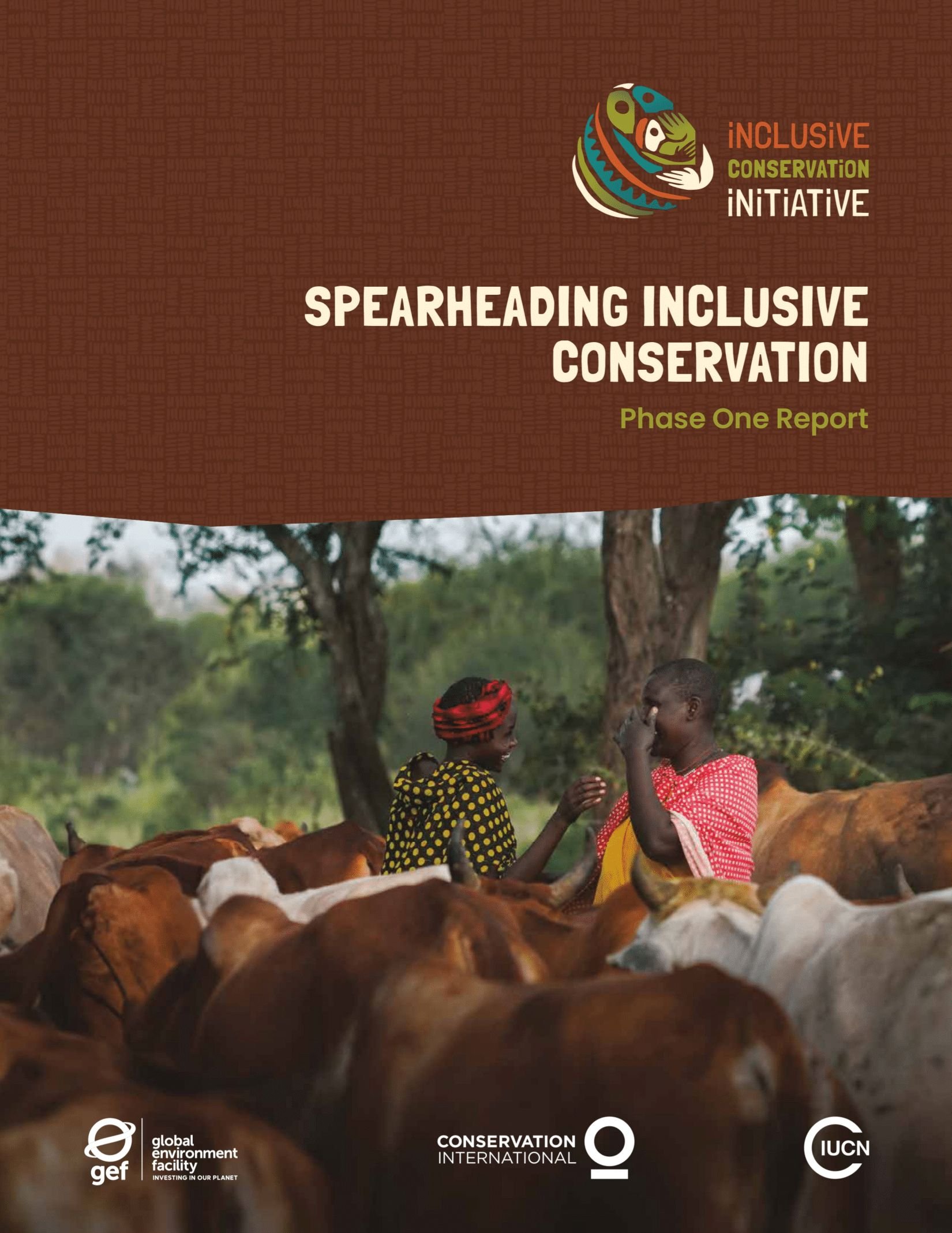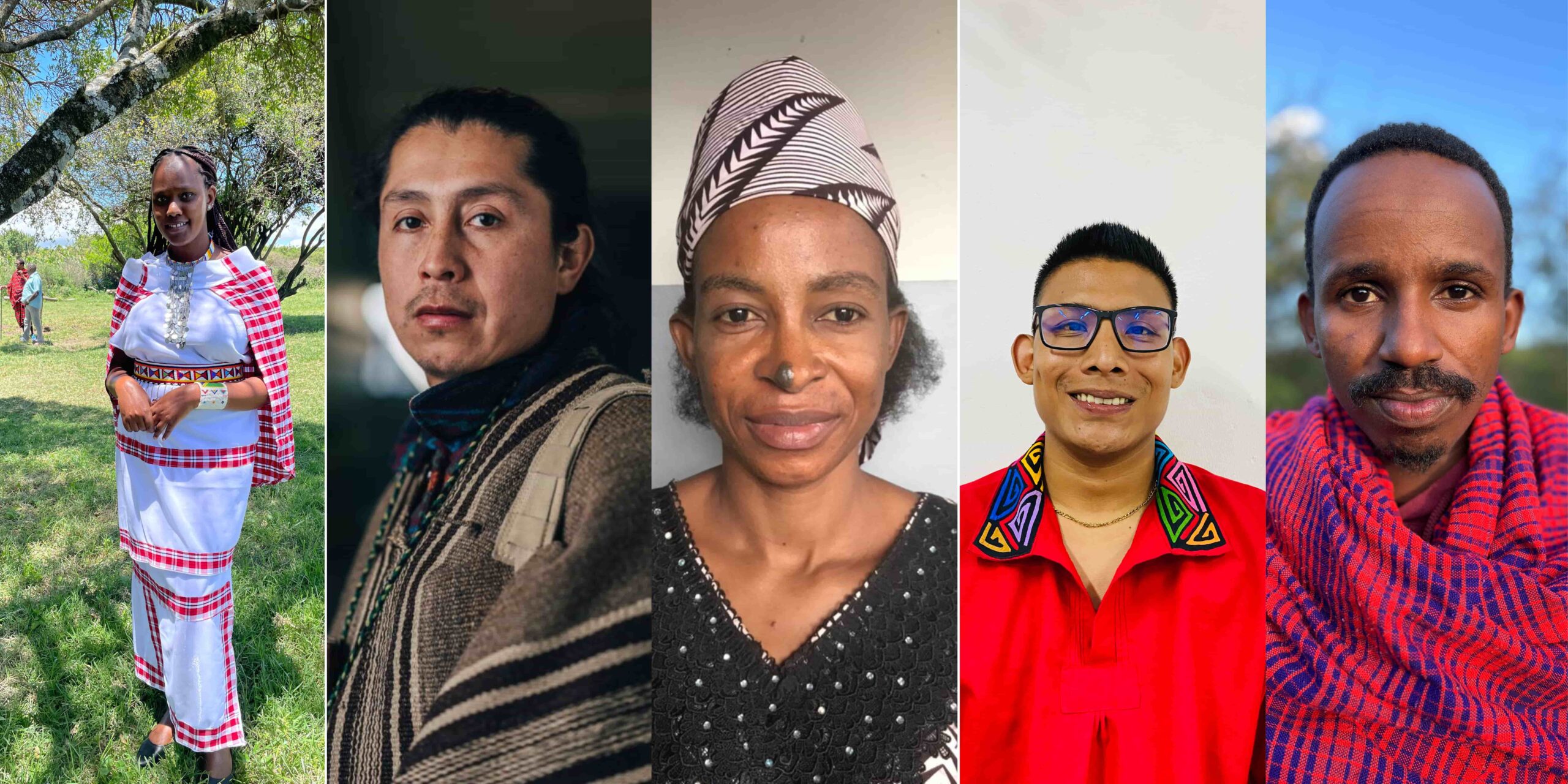
Indigenous Leaders Of ICI Advocate For Inclusion At GEF Assembly
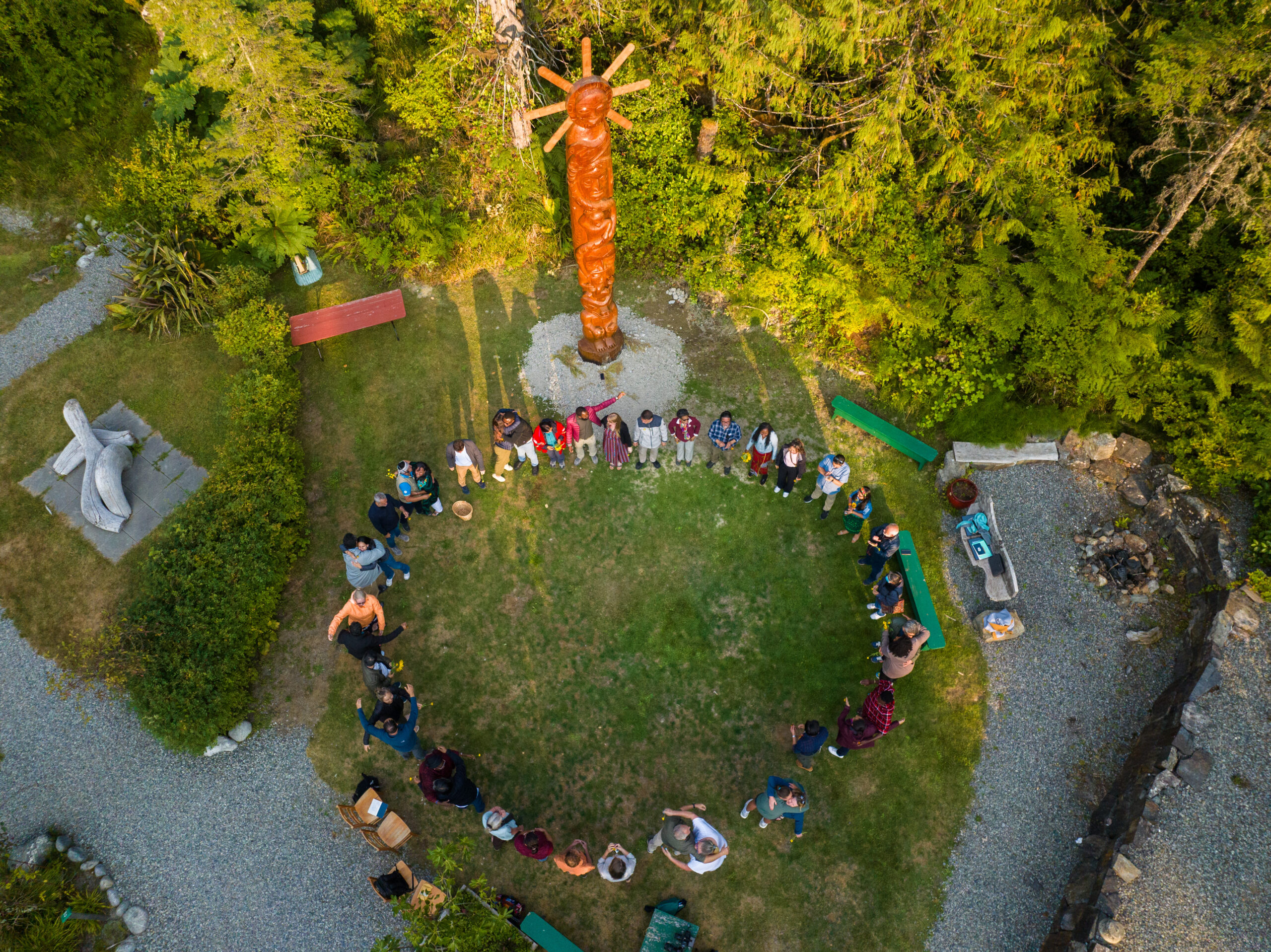
Ahead of the 7th Assembly of the Global Environment Facility (GEF) that took place in Vancouver, Canada August 22-26, 2023, Indigenous leaders from the ten initiatives of the Inclusive Conservation Initiative (ICI) gathered in Tla-o-qui-aht territory near Tofino, British Columbia from August 18-21. There, they participated in the project’s first global learning exchange and met for the first time as the ICI Global Steering Committee (GSC). Leaders later participated in the GEF Assembly, where they welcomed the launch of the Global Biodiversity Framework Fund (GBFF) and advocated for a more inclusive GEF.
The Global Learning exchange was hosted by the Iisaak Olam Foundation on the unceded territory of Tla-o-qui-aht First Nation, with which ICI Indigenous leaders exchanged experiences and learning, as well as with members of the GEF Indigenous Peoples Advisory Group (IPAG). The exchange began with a formal welcome at the traditional entrance place of the Tla-o-qui-aht territory and followed with a sacred fire Maya invocation, during which leaders offered special candles to place their intentions to Mother Earth. Sweet grass was burnt and all participants were smoked as a sign of balancing energies and fostering spiritual and energetic connections for a good meeting.

ICI leaders were joined by the Project Management Unit (PMU) composed of Conservation International (CI) and the International Union for Conservation of Nature (IUCN). As part of the GSC meeting, each initiative presented an update on their impact strategies and the inclusive process they have gone through with all their stakeholders, including target communities, to be able to put these together. The GSC adopted 19 decisions by consensus, including the decision to have a representative of the IPAG on the GSC, decided on a schedule for regional and global learning exchanges, approved the way forward for an Indigenous Fellows program, as well as next steps for capacity building, knowledge management and communications work.
“Indigenous Peoples are conservationists by nature. We have seen so many instances where Indigenous Peoples are not involved. When you involve Indigenous Peoples – when you involve those who know nature – you will have a sustainable environment and community management,” said Fred Parmelo, Manager at the Ujamaa Community Resource Team, an organization that leads an ICI initiative in Tanzania. ICI is helping highlight, protect and enhance the role of Indigenous women by ensuring their presence in ICI decision-making through the GSC. Ilenia Perez, of Sotz’il, shared, “The ICI Meso-america initiative in Panama and Guatemala will help strengthen the work that the Maya, Garifuna, and Guna communities have been doing for years, while also strengthening the role of youth, and the key role played by Indigenous women in biodiversity conservation.”
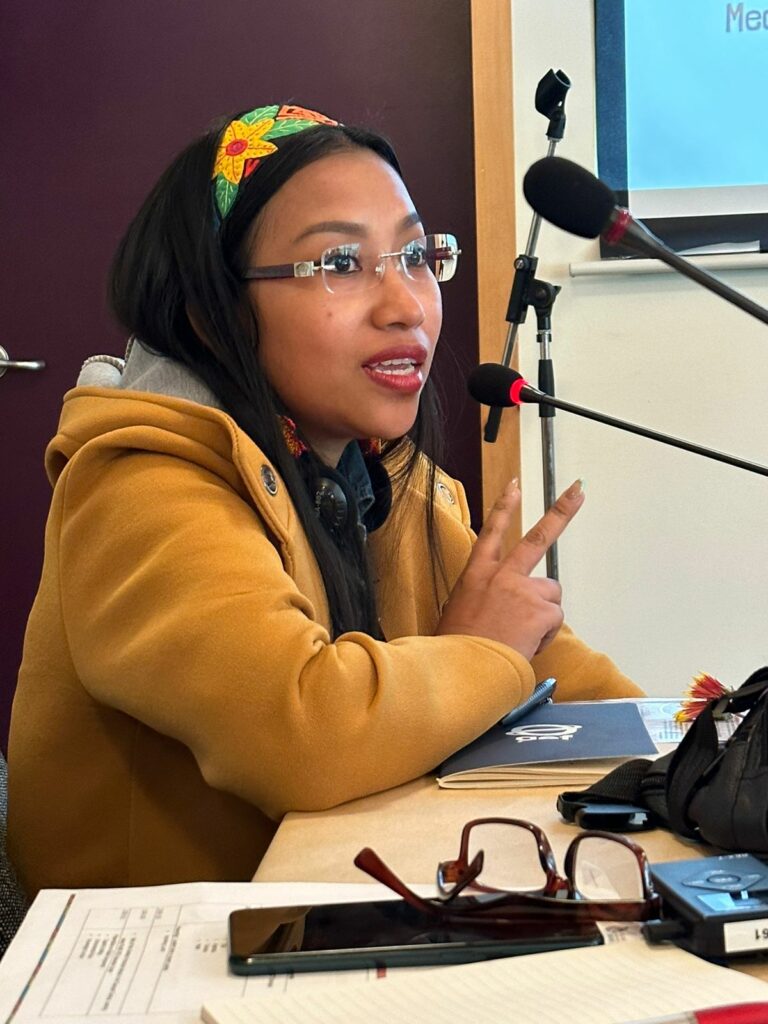
Indigenous leaders also highlighted how ICI is providing a higher volume of funding, and doing so more directly, to IPs and LCs for Indigenous-led initiatives that will help assert their leadership role in stewarding nature, specifically by upholding their land rights. Prescilia Monireh Kapupu, of the Association Nationale d’Appui et de Promotion des Aires du Patrimoine Autochtone et Communautaire en République démocratique du Congo (ANAPAC DRC) said: “In ICI, IPs are not just beneficiaries, but true partners. ICI is addressing long-standing concerns of Indigenous Peoples, including securing collective land tenure.”
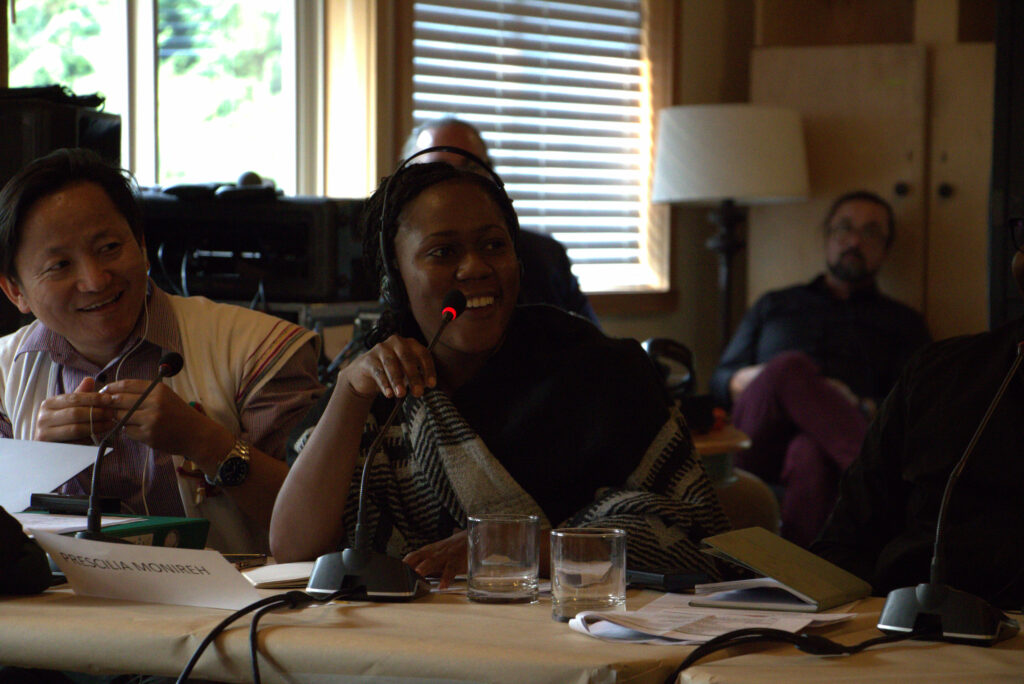
At the GEF Assembly in Vancouver, ICI hosted a side event titled Spearheading Indigenous Conservation: ICI progress to date. The Indigenous leaders from the ICI initiatives shared the work they will be undertaking with GEF-ICI support with Assembly delegates.
ICI leaders shared some of the existing work in their communities that ICI will help enhance. Tunga Badra Rai, GSC Chair and Director of the Nepal Federation of Indigenous Nationalities (NEFIN) highlighted that ICI is a first-of-its-kind initiative, and Ramson Karmushu of the Indigenous Movement for Peace Advancement and Conflict Transformation (IMPACT) in Kenya said that Indigenous Peoples involved in ICI are grateful for the flexibility that the agencies are trying to create within agencies’ procedures. Jorge Nahuel, representing Fundación Ambiente y Recursos Naturales (FARN), from Argentina, said that ICI will help strengthen the Mapuche people’s land rights as well as their culture.
The PMU also highlighted their constant efforts in transforming and reimagining the way that funders and organizations work with Indigenous Peoples. “25 million dollars in funding is not enough, but it is much more than what has been allocated to IPs and LCs in the past. You have heard about the challenges our Indigenous partners have in developing project documents when the language is not adapted to them and their realities. There has to be a constant transformation in bilateral and multilateral agencies to better work with Indigenous peoples, this means a strong look at operational requirements of public funding,” shared Kristen Walker, Senior Vice President and Managing Director of the Center for Communities and Conservation and ICI Project Manager at CI.
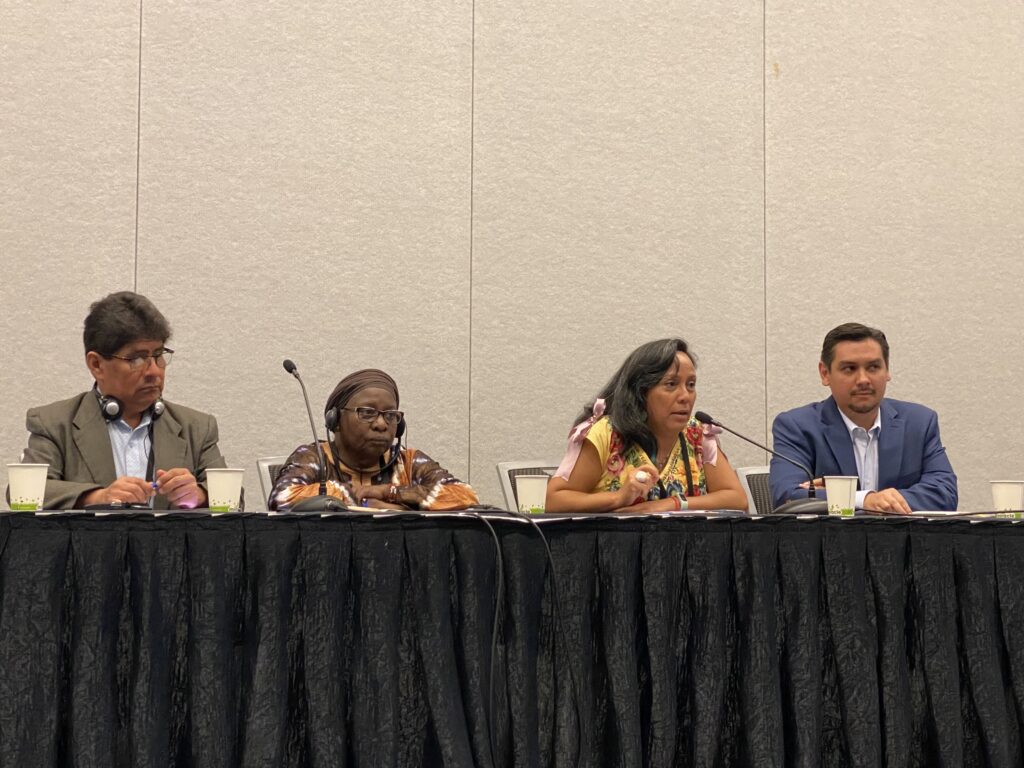
Dr. Anita Tzec, Senior Program Manager on Indigenous Peoples and Conservation and ICI project manager at IUCN, and Luis Barquin, Vice President for Communities and Innovation and Technical Lead for ICI at CI, reinforced that ICI is led and governed by Indigenous Peoples, “Indigenous leaders from the 12 different countries in ICI are the key leaders of the initiative. They, along with their communities, define the priorities, activities, and processes that ICI should be supporting. They also govern ICI through the Global Steering Committee and provide guidance to the ICI PMU on how to move the ICI path forward in a collective and learning-by-doing manner,” said Dr. Tzec.
Ramiro Batzin, Co-President of the International Indigenous Forum on Biodiversity (IIFB), and Lucy Mulenkei, outgoing Chair of IPAG, also highlighted how ICI is contributing to implementing the Kunming-Montreal Global Biodiversity Framework. Finally, Sebastian Troëng, Executive Vice President, Conservation Partnerships, CI, and Grethel Aguilar Rojas, Acting Director General, IUCN thanked the Indigenous leaders of ICI for their trust and support, and both highlighted how ICI is a continuation of long-standing support to Indigenous Peoples on behalf of CI and IUCN.
The GEF Assembly also saw the ratification and establishment of the new Global Biodiversity Framework Fund (GBFF) to help developing countries meet their targets set up as part of the Global Biodiversity Framework. The new fund promises to invest 20% of its resources to directly support initiatives led by Indigenous Peoples and local communities to protect and conserve biodiversity.
Sarah Wyatt, Biodiversity Specialist at the GEF Secretariat, has supported ICI since its ideation to its current stage. She highlighted what makes ICI different and how it can be scaled-up in light of the new GBFF. “ICI is a paradigm-shift for the GEF in that we are funding IP and LC organizations in the same way we work with governments. Beyond ICI, we are committed to more meaningful and effective partnerships with Indigenous Peoples across the whole GEF portfolio. The GBFF presents new opportunities to strengthen our long-standing commitment to support Indigenous-led conservation.”
Indigenous representatives welcomed the GBFF and expressed their wish to continue working in partnership to create meaningful change. They urged the GEF to rethink their requirements, including documentation, highlighted the need for continued strengthening of IPs and LCs capacities, and advocated for the respect of individuality among Indigenous and local communities’ rights and differences while designing the GBFF. These are all elements of inclusivity that are already the heart and soul of ICI.
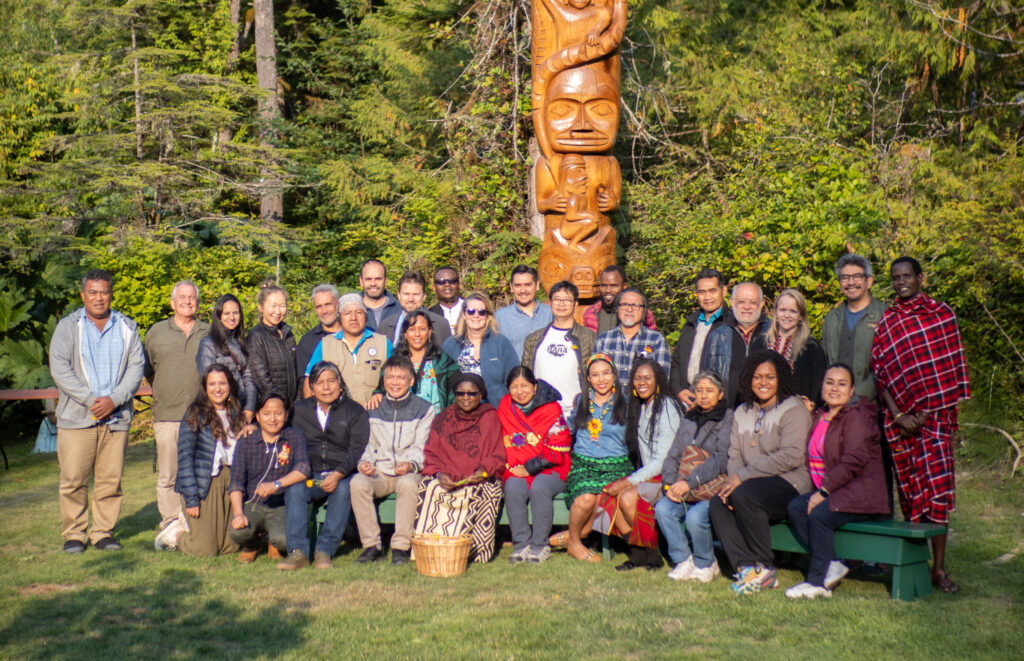
To find our more about ICI and its Indigenous-led initiatives, visit: inclusiveconservationinitiative.org
About the Inclusive Conservation Initiative (ICI)
ICI is funded by the Global Environment Facility (GEF) and implemented by Conservation International (CI) and the International Union for Conservation of Nature (IUCN) in partnership with Indigenous Peoples and Local Communities (IPs and LCs). A GEF-7 project, ICI is built upon the principle that inclusive conservation requires that IPs and LCs be the main authors and implementers. By combining substantial investments in specific locations, with support to magnify local results through global capacity building, policy influence, and demonstration of large-scale impacts, ICI will catalyze the transformational changes needed to secure and enhance support for the contributions of IPs and LCs to biodiversity and other global environmental benefits.
Feature Image Photo credit: Ben Grayzel/Olam Films

